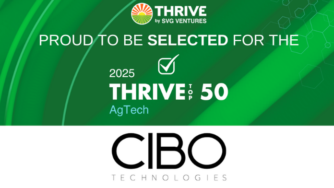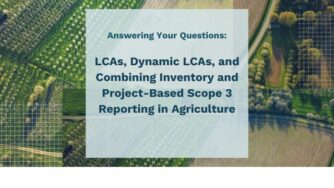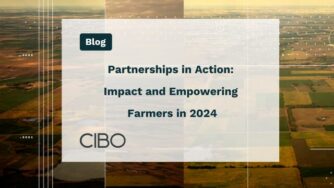The nature-based carbon market is confusing and controversial. Its promise masks agricultural and environmental realities resulting in an agtech gold rush. This panel brought three innovators in the carbon market to the stage for heated and real dialog. Collaborators and competitors, CIBO, Indigo Ag and Nori who raised their collective concerns, outline strategies, and unify to propose an actionable path forward for farmers and the planet. While their approaches differ, they are unified by a common mission: to advance climate solutions while enabling profitable, sustainable, regenerative agriculture.
It’s no wonder that regenerative agriculture and carbon markets have become the biggest story in ag. Everyone seems to be jumping onto the soil carbon bandwagon, and a plethora of NGOs, public-private consortia, academic working groups and private companies are rushing in to define and deliver on the promise of soil carbon sequestration. Today, more than 100 voluntary carbon markets and over 60 different pricing solutions are jockeying for buyers and investors. More than 50 major corporations have announced their carbon-neutrality goals by 2040 and over 900 US companies have gone public with a climate or carbon commitment. The proclamations are impressive, but how will corporations attain their goals?
Along with all the buzz comes a healthy amount of skepticism and competition. Debates on methodology, protocol, avoidance and additionality are spirited. The session focused on three of the Summit’s key topics, including Farmer Resiliency, Innovation/Technology, and Soil Health; and address a minimum of three of the Summit’s target audiences: Grower Organizations, Brands and Retailers, and Government.
Key takeaways
- What’s in the way of unleashing the adoption of carbon farming and regenerative agricultural practices?
- How these barriers can be overcome by combining incentives—not taxes and burdens—such as partnerships, payments and governmental programs (state, local, federal).
- What the future may hold and how the landscape of regulation and governmental programs is rapidly changing.
- How can we collectively move forward the industry to attain climate resilience?
About the organizations
CIBO is focused on accelerating the transition to regenerative agriculture.Founded by Flagship Pioneering with the idea of applying advanced science and technology to generate a deep understanding of land and agricultural systems at scale, CIBO combines scaled scientific ecosystem simulation and advanced computer vision in an integrated cloud-based platform. CIBO delivers solutions that support the needs of both growers and enterprises on their journey to regenerative agriculture. The result for the environment is a reduction in greenhouse gases, a food system that is more resilient to climate change, and the prevention of nitrogen and phosphorus leaching into our water systems. CIBO is a 2021 Fast Company World Changing Ideas Awards finalist.
Indigo Ag improves grower profitability, environmental sustainability, and consumer health through the use of nature-based and digital technologies. The company’s core offerings – Biologicals, Carbon, Marketplace, and Transport – integrate across the supply chain to optimize how the world’s most impact crops are produced, sourced, and distributed. Founded in 2014 with a mission of harnessing nature to help farmers sustainably feed the planet, today the company’s technology connects stakeholders across the agricultural ecosystem to unlock sustainability and profitability benefits for all. Indigo Ag is headquartered in Boston, MA, with additional offices in Memphis, TN; Research Triangle Park, NC; Sao Paulo, Brazil; and Basel, Switzerland.
Nori is a carbon removal marketplace based in Seattle, Washington. Founded in 2017, Nori uses the best from the worlds of ecommerce and blockchain to make it as easy as possible for farmers and others to get paid for pulling carbon dioxide out of the atmosphere and storing it in a credible way. Their first carbon removal methodology is with farmers on US croplands employing regenerative agricultural practices.



